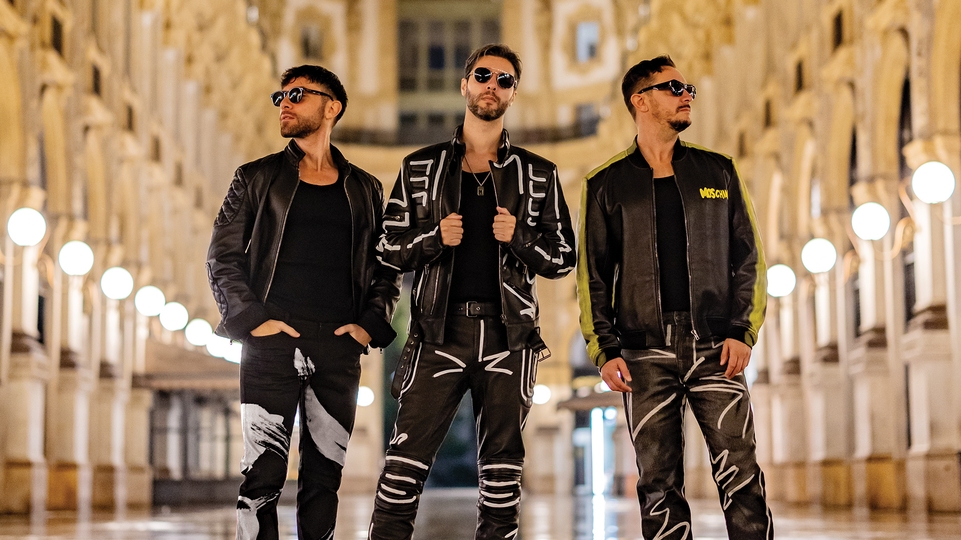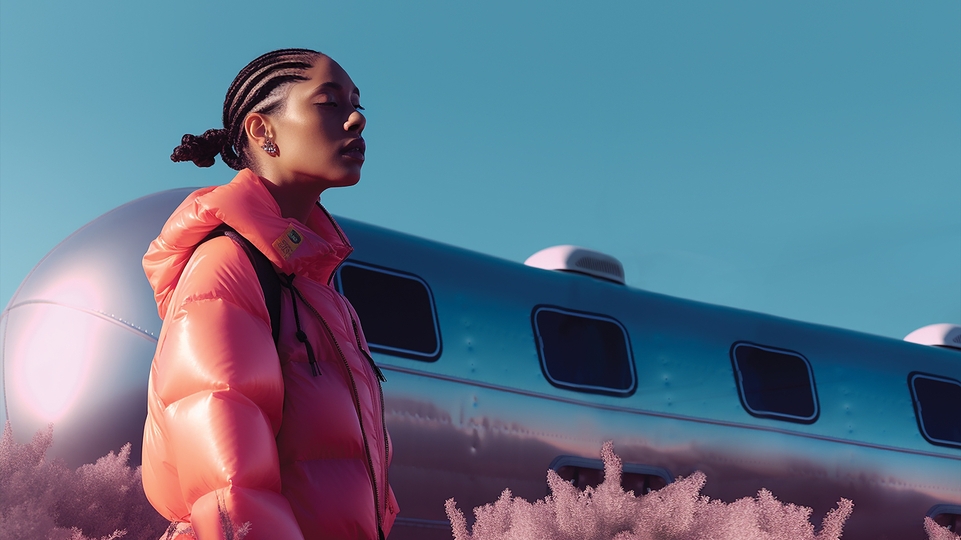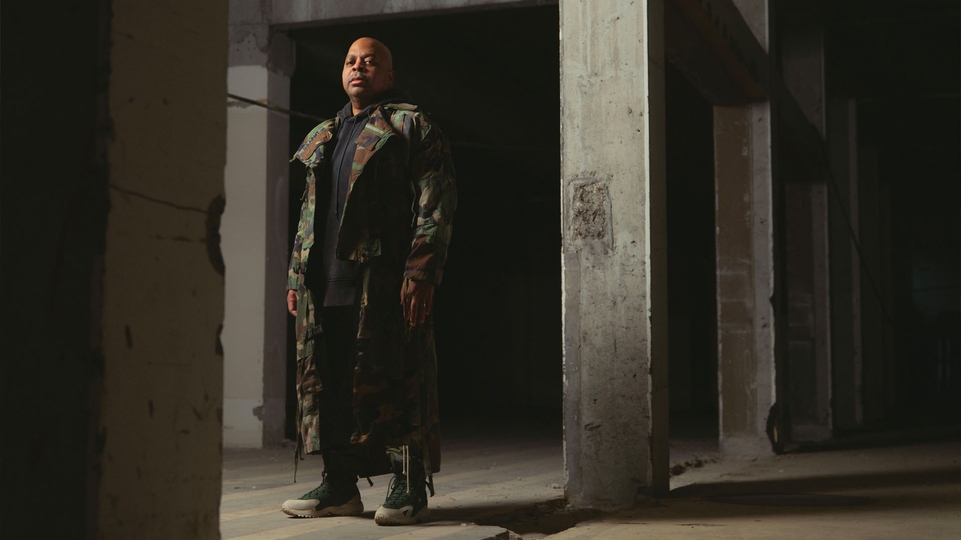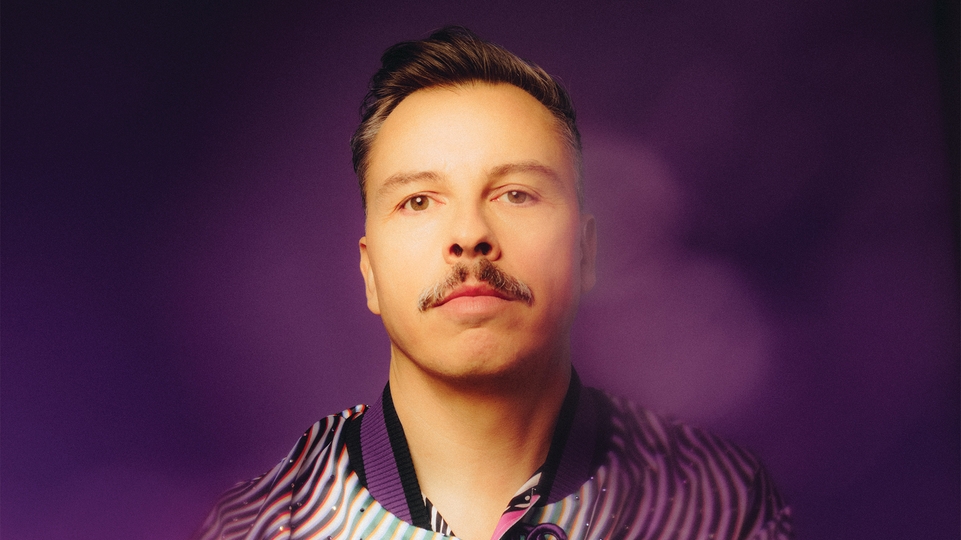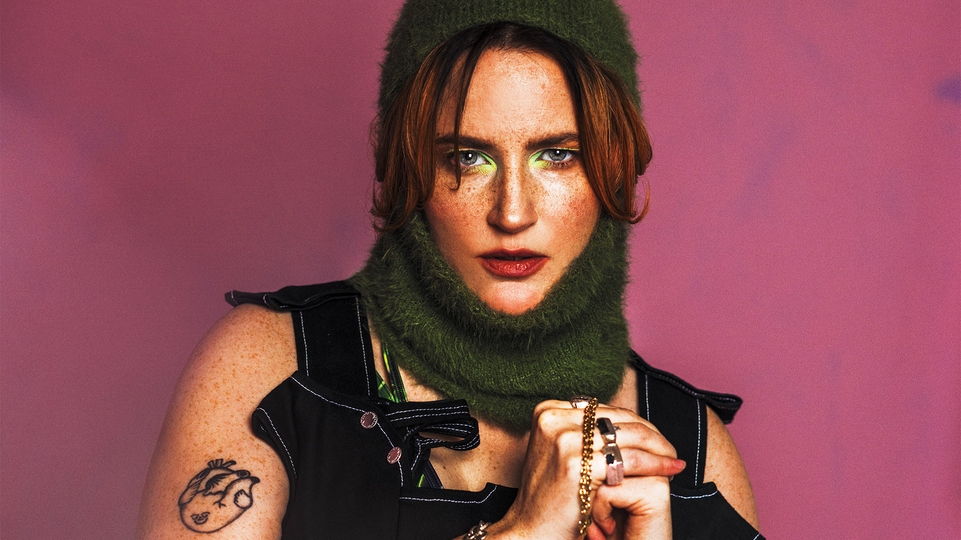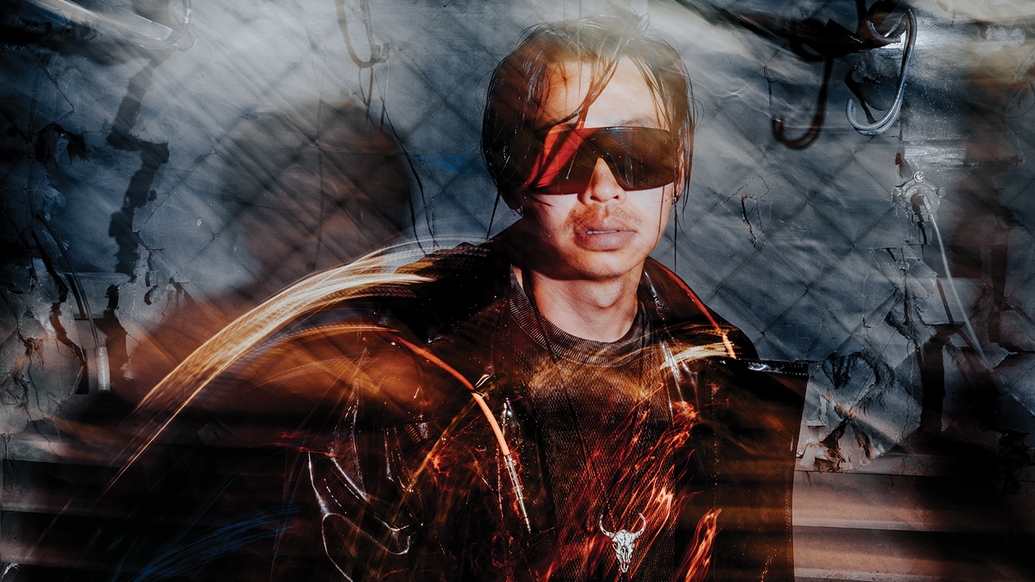
ZHU: the DREAMLAND experience
During the early part of the pandemic, DJ and producer ZHU went on a road trip with his bandmates, recording his new album in remote locations along the way. Born of isolation, and inspired by the beauty of these landscapes, his new album ‘DREAMLAND 2021’ is an epic document of that time. DJ Mag catches up with him over Zoom to talk about what inspired his journey, his rise to fame, and the concept behind his Blacklizt events
Steven Zhu can’t sit still for long. It’s a characteristic that has always served the artist, better known simply as ZHU, quite well. Since he launched his eclectic dance music project in 2014, the Chinese-American multi-instrumentalist and producer has nurtured a career that carefully flits between being absolutely massive and intentionally mysterious, often at the same time.
ZHU spends the beginning of an afternoon Zoom call with DJ Mag rolling a joint, as he chats about his remarkably productive quarantine year from the porch of his Los Angeles home. Donning a baseball cap and white sweatshirt, he’s dressed down compared to the high-fashion looks he sports on stage during his live performances and Blacklizt DJ sets.
“I get pretty antsy when I don’t have a lot of stuff to do, and I just needed to continue making things,” ZHU shares, summarising the emotions that led him to embark on a life-changing road trip during which he clocked more than 10,000 miles. While en route, he also wrote, mixed, and tweaked much of his new ‘DREAMLAND 2021’ LP — a scorching body of work that is equipped to be played for packed, sweaty nightclubs, even though most venues were shuttered at the time of its genesis.
Last March, ZHU touched down in a locked-down Los Angeles after catching a flight home following his Cercle performance in Nagano, Japan. As the streets around him sat quiet, he knew it was only a matter of time before he’d grow anxious. Before that could happen, ZHU rallied a few of his bandmates together and organized a game plan.
“We were like, ‘Okay, cool. Well, we can’t play music at shows, but maybe there’s a way to do it in the middle of the desert,’” he reflects, letting out a chuckle. As it turns out, there was. ZHU and three of his colleagues — a saxophone player, a guitarist, and a cameraman — piled into separate cars and headed east. The pandemic’s unusual circumstances sent the quartet to remote areas of the country that they’d formerly only seen from far above as patchwork shapes.
“It was probably the dopest trip I’ve been on, you know, because usually I fly from city to city,” he says. “I don’t really go through the rural parts of America. But I found a whole new appreciation for all of the different intermediate parts in the process of getting to each location. And I think, regardless of whatever cheesy metaphor that ends up becoming, that is something that I pay attention to now.”
Unfamiliar locales like Billings, Montana and Coral Pink Dunes State Park in Kane County, Utah lent inspiration to the shadowy productions, which ZHU describes as being more “crunchy” and “earthy” than previous records. The rocky terrain at each stop offered otherworldly stages for the livestreams that churned the primordial make up of ‘DREAMLAND 2021.’ What emerged in April 2021 was a gritty collection of mostly techno-leaning cuts, tinted with the post-apocalyptic vibes that felt all too familiar during the initial onset of the COVID-19 pandemic.


“At some points in life, it seems like you’re just watching everything happen. And then, there are other points in life where you get to be in the driver’s seat making the decisions”
INSIDE ZHU’S RIDE
“I did a lot of the mixing and sound designing in the car, because that was where I spent a lot of time, and it was where I had the loudest speaker,” ZHU says of ‘DREAMLAND 2021’s unusual beginnings. “There weren’t any clubs. We weren’t really recording, and studios, per se, were all closed.” ZHU embraced the unexpected limitations with an open mind.
He packed a camping bag with the essentials. Yeti-brand GOAL ZERO portable power stations offered enough energy to run a mobile rig through his Apollo xFour audio interface. “And just like that, we were able to build a campsite with enough inputs for a guitar, keys, vocals, laptops, and that was it,” he says. With this roving set-up, ZHU and his bandmates worked steadfastly during a period when the rest of the world sat on pause. Though ZHU had planned to release an album in 2020, he says the majority of ‘DREAMLAND 2021’s tracks took shape after the lockdown.
“I think the energy and the vibe, even just the tone of the music was very different, because I was isolated and I was also yearning for movement and wanting to make something happen,” he explains of infusing new experiences into his beats. “Because I was driving so much, I needed [to feel] how the music hit in the car, and everything was kind of referenced off that,” he explains. “Because of this, the bass had to be really fat, and I think against other records the drums sound different too.”
Like the rugged land that surrounded him, the productions boast a range of atmospheric and crispy effects. A solitary electric guitar occasionally injects a piping-hot jolt of long-gone Americana — it’s an unfamiliar take on playa tech that feels oddly at home in this COVID-era collection. ZHU’s signature breathy vocals and minimal style ensure that there’s no question as to the mind behind the wheel.

‘DREAMLAND 2021’ is the epitome of content made during quarantine. Lyrics like those in ‘Distant Lights’ capture what it felt like to crave live entertainment during a suppressed and silent season. It blasts off with a bold guitar riff, before an energetic drum machine and ZHU’s reverb-drenched voice offer a therapeutic audio-escape. It’s got a clean, pulsing rhythm that screams “after-hours gold” — though in the absence of parties, ZHU says its sentiment resonates among a sea of sand too. “That was a song that I just made a beat for to fill some time in the Coral Pink livestream,” ZHU says. “I was just making up lyrics on the go. And afterward I thought, ‘this should really be a song.’” It’s a love letter to crowded late-nights passed, and an eager plea for nightlife’s revival.
‘Only’ is a sultry ode to loneliness. The collaboration with singer Tinashe is a melancholic and progressive production that gets a twisted-touch from unusual distortion and synths. The music video, which was shot while Los Angeles was under a state of emergency, snaps a desperate moment in time with artistic finesse.
“That was a very memorable experience. I will never forget making that music video,” ZHU says. To stay within social distancing restrictions, a small film crew rented multiple studios and turned to abstract storytelling. The resulting video depicts two weary souls struggling to connect from separate rooms — a concept that ZHU says was born out of necessity. “It was the only way we could outsmart the protocols,” ZHU explains. The co-director, Jack Murgatroyd (ZHU is also credited), took his position on a roof across the street from the video’s stars. Fancy camerawork and a second building ensured the duo could act out their sequences from behind their own respective windows. While the process of capturing the footage was anything but traditional, ZHU says he welcomed the unexpected curveballs.
“We were forced to do it this way, and honestly sometimes limitations are the best thing for creativity, because it’s about evaluating the options that are available, and just using the tools you have to the best of your ability,” he explains. “I think looking back at this phase of art we’ve all created, we’ll have strong memories and nostalgia for it.”
Though isolation and uncertainty are present and potent themes in ‘DREAMLAND 2021,’ the LP is not without rave-ready bangers. Channel Tres chimes in on 'How Does It Feel', a jangly, futuristic number that speaks to poppier sensibilities, while ‘Zhudio54,’ a track produced alongside partywithray (who appeared on ZHU’s 2019 slang-slapped hit, ‘Came For The Low’), is a tech-house heater that nods to ZHU’s love of fashion. Plus, it’s a not-so-subtle invitation for weary revelers to lose themselves in the groove.
In May, ZHU played a sold-out, six-night run at the iconic Red Rocks Amphitheater venue in Morrison, CO. If ‘DREAMLAND 2021’ is the search for a discernible light at the end of an unbearably long tunnel, these shows were the sun. “I didn’t know what people were really listening to at that time,” he says. “I don’t think I really connected until I was there in the moment, and I saw people singing my lyrics back three days later after the record came out. Anybody who thinks they can come out of the pandemic knowing what people like is wrong. Nobody knows.”
After that unveiling, it’s safe to say that ‘DREAMLAND 2021’ has received an anecdotal stamp of approval from critics and longtime ZHU followers alike. More than 10,000 of them braved inclement weather to join ZHU in his triumphant return to the dancefloor. “It rained two nights and it snowed two nights,” he laughs. “It was definitely like a movie.” In the presence of massive rock formations and sienna tones, snapshots from those dancefloor reunions looked like a dream come true.


INSIDE ZHU’S RISE
Born in Hangzhou, China, ZHU moved to the West Coast with his parents when he was six-years-old. In search of new opportunities, the immigrant family landed in San Francisco’s Bay Area, where ZHU would spend his childhood years. Music was an integral part of that upbringing — his mother enrolled him in piano lessons from an early age, though it was a pastime that sometimes left ZHU restless.
“My first non-keyboard instrument was a flute, and after that it was the trombone, which is kind of where I really started to play on horn sections,” he shares of his formal training. “With the piano and classical music, you’re always playing other people’s stuff and repeating what other people are writing. It almost felt mechanical and robotic to me. Once I started playing horns, and the charts were for chords, I just improvised, and that was the first time I actually really enjoyed creating music.” Jazz became an outlet for creative expression, its loose format enabling ZHU to scratch a stubborn itch.
ZHU eventually made his way to University of Southern California, where he loaded up on business courses in an attempt to learn more about the inner-workings of the music and entertainment industry. During his free time, he produced music, often crafting beats in a two- bedroom apartment that he shared with a roommate. For cash, he took lighting gigs at a music venue in Hollywood two or three nights a week.
“I’d probably get paid 100 bucks a night, and I was running lights for DJs who honestly sucked,” he laughs. Amateur hour or not, ZHU still found the environment enticing, shrugging off his parents’ concerns that his passions might lead him down a difficult path. “Their only idea of an artist was a starving artist,” he says.
Though sitting at a piano and recycling works had proved unsatisfying to ZHU during lessons, creating his own covers were a different story. In 2014, writers at leading EDM blogs received emails including a link to a track titled “Moves Like Ms. Jackson”, along with an image of the Z-Flag logo.
The groovy, deep house medley of Outkast tracks took recipients on a walk down memory lane, spotlighting the hip-hop duo’s greatest hits (among them ‘The Way You Move,’ ‘So Fresh, So Clean,’ ‘Ms. Jackson’ and ‘The Whole World’), all sung by what would eventually become known as ZHU’s unmistakable falsetto. Though the lyrics and some rhythms are borrowed, the rework is quintessential ZHU, bathed in mystifying minor chords and flowing with flawless transitions. It took him just a week to record what would be his second big introduction into mainstream airwaves (some outlets have reported that an early ZHU track was featured on a Jersey Shore reality series spin-off, but good luck finding that on the web.) This release was different. It was calculated, low-key, and it did the trick — house heads were hooked.
The melodic hip-hop cover was uploaded to a blank SoundCloud profile owned by the moniker, “ZHU”. With no face or photograph to lend clues of the composition’s creator, people began searching for answers.
Rumors swirled. Who or what was “ZHU”? One prevalent theory put Skrillex at the center of the speculation. Could it be that Sonny Moore had launched a secret house alias? Fuel was added to the chatter during the 2014 Stereosonic Festival in Brisbane, Australia, when Skrillex popped out from behind the decks during ZHU’s set, a prank he recalls with a smile. As the familiar chords of ‘Faded’ transformed into the opening stabs of ‘My Name Is Skrillex,’ the packed tent erupted into mayhem as attendees inside celebrated the false notion that they were the first to solve this perplexing puzzle.


But those hoping to tie the intoxicating Outkast-laced arrangement to an established tastemaker would find themselves disappointed. ZHU was as fresh as they come — a natural talent who wanted clear control of his privacy and artistic vision.
“Though I was the driving force, my whole entire team at that point in my career had really rallied behind the idea of letting the music be the centerpiece,” he explains. “And I think it was just authentic at that time. Every DJ was trying to be a poster boy for something, and it was all about selling a certain look and lifestyle, and everything just looked very generic to me.”
During his career’s infancy, ZHU defied norms, choosing instead to perform behind a screen. Mostly hidden among a motif of grey and black visuals, he covered his face and let his tunes do the talking, a choice for which he has no regrets.
“All the early records were made in a very grainy, grimy, small, insular, solo-type space,” he shares, cognizant of how drastically his life has changed since that launching off point. “I wasn’t that thing that everybody wanted to sell, you know? I was just some kid, in some random apartment making some songs that people really fucked with.”
INSIDE FADED
Among the most “fucked with” of ZHU’s tracks to this day is his debut hit ‘Faded’, for which he nabbed a nomination at the 57th Annual Grammy Awards (2014) for Best Dance Recording. Clean Bandit’s ‘Rather Be’ took the award home that year, but ZHU’s inclusion in the category demonstrated a palpable shift in the dance music landscape — now an unknown name with a dark sonic edge could hold his own in a scene that craved candy-coated pop.
Following a hit like 'Faded', which topped dance music charts around the world and garnered official remixes from artists like DJ Snake and ODESZA, it was clear that ZHU’s identity would not remain in question for long. When his debut album ‘Generationwhy’ dropped in the summer of 2016, it felt like he was finally ready to evolve and personify his project.
“After ‘Faded,’ I knew this kind of magnitude can rarely be replicated,” he explains of his choice to be forward-facing in his music. “So, I was more focused on just creating bodies of work, and doing those things that I skipped, like really taking time on the road, paying my dues, and trying to not chase hits.”
Regardless of whether he was chasing them, ZHU churned out chart-toppers all the same. Not afraid to dabble in different genres, the sonic aesthetic of ‘Generationwhy’ careened between moody house, electro-jazz and downtempo future trap. ‘In The Morning’ only cemented ZHU’s reputation for writing hits, hitting #23 on Billboard’s Dance chart in March of 2016. Skrillex even made an appearance on the album as a collaborator, along with THEY., in the track ‘Workin’ For It’, which hit #5 that May.
“I really wanted to focus on crafting the whole entire project based on the sounds that I wanted to deliver to the fans. I mean, people didn’t really realize what I was like, or what I did. One day, they thought it was some random girl singing on the tracks, well that happened to be me,” ZHU says.
As he continued to unleash more singles, EPs and full-length LPs, so did fans stop trying to predict his next move. When the independent label Mind Of A Genius released his 2018 album, ‘Ringos Desert’, fans were taken on a progressive, alternative ride. The 14-track LP, which featured well-known names like TOKiMONSTA and Australian rockers Tame Impala, packed serious crossover power. ZHU dominated main stages when he performed standouts like ‘Desert Woman’ and ‘My Life’ at large-scale events such as Governors Ball and Bonnaroo the next summer. But, by then, he was craving intimacy that festival settings rarely foster. Thankfully, he’d established another outlet to fill the void.


INSIDE BLACKLIZT
New Yorkers with a taste for adventure first heeded ZHU’s call in 2017. Hundreds showed up in-person to an address in the Lower East Side, where they bought non-refundable tickets to a show at an undisclosed location. After purchasing their admission to “Blacklizt”, attendees were handed a paper flyer and a phone number to call on event day for details regarding time, dress code, and address. For ZHU, the process paid homage to the golden era of underground raves.
“I had started to play more live shows with the band and at festivals with crowds of 20 and 30 thousand people,” he explains. “The club aspect that I grew up on had started to disappear, and Blacklizt to me was this idea of focusing on the most pure thing — it’s about the club, the darkness, the energy.”
To the relief of buyers, the first iteration of Blacklizt popped off at a warehouse in Brooklyn (some ticket holders had been told “it might be in Jersey” — it didn’t stop the show from selling out anyway.) Guests were instructed to wear all black. Those that followed this simple rule were treated to a new taste of ZHU, one without a need for live instrumentals or arena theatrics.
“DJing and performing are two different things, and some people understand it, and some people don’t,” ZHU says. “When you’re performing, especially with a band, it’s much more of a conversation between you and the people on stage. When you’re DJing, it’s much more of a conversation between you and the audience.”
During Blacklizt, ZHU knows he’s “conversing” with tough critics. He’s unlikely to hop on the mic, and if he does choose to sample his own vocals, they’ll be presented as accessories to slammin’ acid and heavy techno cuts. It’s a celebration of heft, and turned-up human connection.
"At the core of the club, it’s [a place] where people come together to be shrouded by the dancefloor, and they continue to do their thing. That’s the most beautiful thing about it,” ZHU explains. “It’s like everybody’s on the same rhythm and pulse. What else can you ask for?”
When on the rare occasion Blacklizt transcends its typical backroom or warehouse setting, the vibe remains preserved. ZHU recently treated a crowd of approximately 2,500 to his stylings at Seismic Dance Event in Austin, Texas after he was pulled in as a last-minute replacement for Charlotte De Witte, who was unable to travel for the May dates.

ZHU accepted the challenge, integrating just a handful of his own tracks (‘Risky Business’ was a highlight) and lending his signature touch to a techno set that people are still lauding on the festival’s socials.
“In an underground atmosphere, even if you play a record that maybe 1,000 people have heard, then it’s already too big,” ZHU says matter of factly. “But, you know, some great records are just great records. I’d maybe play a Massive Attack record in a Blacklizt set if it was the right time.” But don’t expect too many of those — most of ZHU’s Blacklizt bag will represent genres that “Faded-only fans” have never heard... and that’s the point.
INSIDE ZHU’s DREAMLAND
The swift transition from anonymity to stardom might shake less grounded artists, but ZHU met sharp turns with grace. That said, he has pondered whether his discreet entrance into dance music had an effect on his rapid escalation.
“If ‘Faded’ had come out with my face plastered all over it, would it have done as well? I don’t know. Probably not. But then again, maybe the track was just that good,” he says, weighing the hypothetical. “But I really can’t say, because the story happened the way that it happened.”
His meteoric rise evokes memories of that “cheesy metaphor” he mentioned at the top of his interview with DJ Mag. When he was still an enigma, he jetted quickly from show-to-show, skipping over those intermediary pit stops on his ride straight to the top. Only following his number one hit has he revealed intricate, lesser-known facets of his identity. These weaving freeways and unforeseen routes each contribute to ZHU’s journey.
The big reveal is far from over: ZHU wants to showcase more of himself in his work. Last summer, he teamed up with rapper 24KGoldn on the I Admit It Experience, a virtual fashion show that spotlighted new designs from ZHU, and culminated in the performance of the low-rumble trap track of the same name.


“24 grew up in the same town as me in the Bay Area, and we actually went to the same school,” ZHU says. He and 24KGoldn share memories of a similar San Francisco, one ZHU talks about like a forgotten place that has eroded over time. “I think there’s a lot of history from where I spent my early life that hasn’t really fully made it onto the records,” he says. “And maybe people don’t even really know about that part of me, probably partially because I never disclose it. But I think little by little, some of the influences that I had growing up... I think I’m going to try to, in the best way I can, put those on to pieces of music.”
ZHU acknowledges trailblazing rappers like E-40, Too $hort and Dr. Dre, who set the tone for the flourishing West Coast hip-hop scene, back when Oakland and other parts of the region were still virtually untouched by big tech. Retro rock outfits like Sly and The Family Stone, Jefferson Airplane and Santana, all of which had roots in SF, have also stirred a creative spirit in ZHU.
Perhaps festival goers will sense those flavours this October when ZHU has his homecoming at Outside Lands, a multi-day event in Golden Gate Park. Ask him about his heritage, and ZHU is quick to respond with takes from West Coast culture. He came of age in his parents’ “dreamland” of sorts — an unfamiliar land they whisked away to when possibilities near home had dried up.
“At some points in life, it seems like you're just watching everything happen. And then, there are other points in life where you get to be in the driver’s seat making the decisions,” ZHU says, looking back on how the pandemic sent him on a transformative journey through a wild and untamed country that he realizes, now, he too barely knew.
“I like to be on the move — that’s what I discovered,” he reiterates with confidence. “I like to stay in a moving pattern.” For those who have followed ZHU’s offbeat progression with fascination, that’s fabulous news. And if the planet happens to find itself in another global crisis, then at least we can be sure of one thing: ZHU will step on the gas and crank out some valiant jams to get us through.
